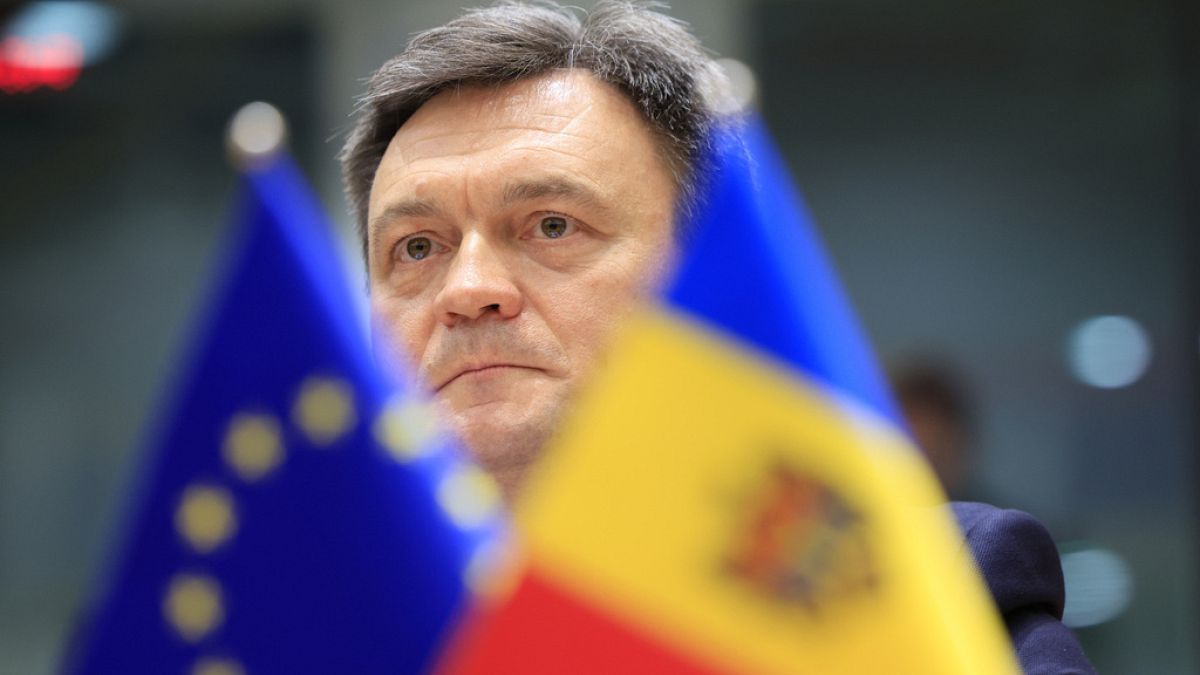On the first day of the new year, gas supplies from Russia to Moldova’s pro-Russian separatist territory were halted. For Moldova’s Prime Minister Dorin Recean, the Kremlin aims to destabilise the pro-European government in Chisinau.
Since 1 January, Transnistria, the pro-Russian separatist region of Moldova, has been cut off from Russian gas supplies via Ukraine, a consequence of Moscow’s ongoing war against Kyiv — prompting Chisinau to accuse the Kremlin of orchestrating a security crisis within its borders.
The disruption in supplies has created a dire situation for the region’s 450,000 residents, leaving them without heating or hot water. The local authorities have also imposed power cuts, further exacerbating the crisis.
“People have no electricity for four hours a day, no heating and, above all, no access to gas. And as of today, there are even interruptions to the water supply,” said Moldovan Prime Minister Dorin Recean.
The government in Chisinau has offered to help, but Transnistrian officials have declined the support.
The Moldovan prime minister pointed the finger at Moscow for provoking a humanitarian crisis in the region to destabilise the pro-European government. Parliamentary elections are scheduled for this autumn in the country, which lies between Ukraine and Romania.
Unlike Transnistria, Moldova has been less affected by the disruption in the gas supply. The country ceased relying on Russian gas in 2022 following Moscow’s full-scale invasion of Ukraine and now benefits from support from neighbouring Romania.
However, Transnistria remains highly dependent on Russian oil and gas, which power the Cuciurgan power station — the largest one in Moldova. Although located in separatist territory, the station supplies 70% of Moldova’s electricity. This dependency puts Chisinau at risk of power outages if the situation escalates further.
Moscow may seek to shift blame for the supply disruption onto the Moldovan government and Kyiv after Ukraine refused to renew the 2019 transit agreement with Russian authorities for gas delivery through its territory.
With the Moldovan elections approaching, there are concerns that the Kremlin may initiate a disinformation campaign, attempting to blame Chisinau and Kyiv for the situation, though this comes with its own risks.
Any threat to jobs and tax revenues to the already weak and Kremlin-reliant economy of the breakaway parastate could weaken the local authorities’ hands, potentially affecting their standing in the 2025 elections.
Moldovan prime minister said that the Kremlin wants to see a pro-Russian government in the future, which would enable it to strengthen its military presence in Transnistria. Moscow has around 1,500 soldiers in the region bordering Ukraine, acting as peacekeepers.
Brussels is closely monitoring the situation, as Moldova is a candidate for EU membership, and the EU is Moldova’s main financial backer.
The European Commission announced on Monday that it is collaborating with the European energy sector to ensure Chisinau can be supplied with adequate electricity if needed. The Commission also urged EU member states to demonstrate energy solidarity with Moldova.

